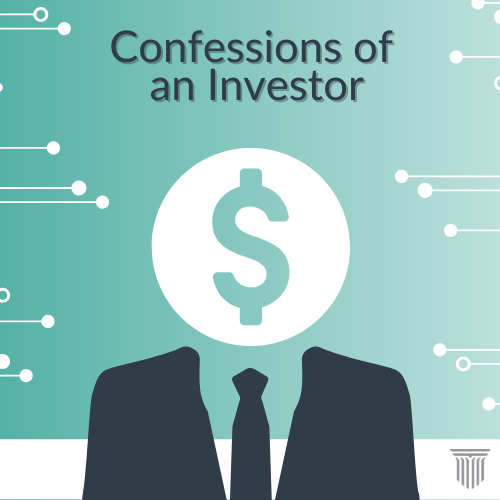The world of investing can be difficult to navigate. It’s hard to know what works and what doesn’t. For that reason, we sat down with our very own Investment Partner: Wes Mills. Wes is an expert in finance, portfolio management, and asset allocation. After 35 years of investing, we think it is safe to say that he has pretty much seen it all. We asked him some questions about what he loves (and hates!) to see when considering an investment. Here’s what he had to say…
Q: What makes a startup stand out to you as an investor?
A: The most important thing to me as an investor is knowing who I am dealing with and if I can trust them. Trust is key in so many relationships. Especially with the people who will be handling your money. Depending on the type of investment, trust can look very different. Some investments are riskier than others so trust in the organization should be based on their knowledge and experience.
Q: But how do you trust someone you’ve just met?
A: To determine if a business is trustworthy, I look for good management, business models, plans to pay back the loan, track record, growth opportunity, and a good brand story. All of these elements show how well prepared the organization is and it gives investors confidence in the business. Every investor has different priorities so what they look for, whether it be financial statements and personal capital invested, addressable market and growth plans, patents or other intellectual property varies greatly between each investor. Because of that, it is important to provide evidence of competence, commitment, and the ability to execute.
Q: From your perspective is there anything founders should avoid when pitching?
A: Absolutely. I have seen thousands of pitches – some from Ivy League graduates that are extremely sophisticated, and I have seen other pitches from young founders that simply exude passion for the business. What makes them good is not necessarily credentials or experience; rather, it’s demonstrated competence and knowledge of their business. Do they have command of the subject matter? Are they able to answer questions? Do they know their costs? Have they tested their service or product? What phase of the business cycle are they at? All of this gives the investor a sense of where the business is at and why they should get on board. If they struggle to answer basic questions, it shows that they are not ready to be speaking to investors.
Q: Do you have a number one top tip for founders preparing their pitches?
A: Don’t waste my time. We have all heard the saying “time is money” and that rings true in investing. A huge part of avoiding this is understanding your audience and getting to the point. Be prepared; tell your story succinctly, demonstrate your value proposition and listen to questions carefully before you answer.
Q: Can you provide an example of some of the best pitches you have seen? What made them great?
A: Passion and hard work demonstrate commitment, but what gets me most excited is when a business solves a problem or creates a paradigm shift which results in lower costs, more efficiency, and greater profits. When these elements come together in a pitch it gets me excited about the potential for the business and makes me want to be part of it.
Q: Do you have any other words of wisdom?
A: Confidence and competence are the qualities investors most look for in making their decisions about company management, particularly in smaller and private companies.
Pitching to investors is a daunting task, we know. But with the inside scoop from Wes, we hope you’ve got some tips to put in your back pocket. Check out our recent blog post with tips on pitching like a pro, and if you have any questions, don’t hesitate to reach out to us at [email protected].







